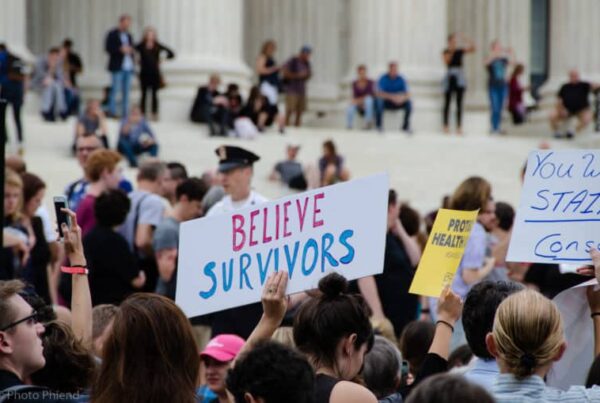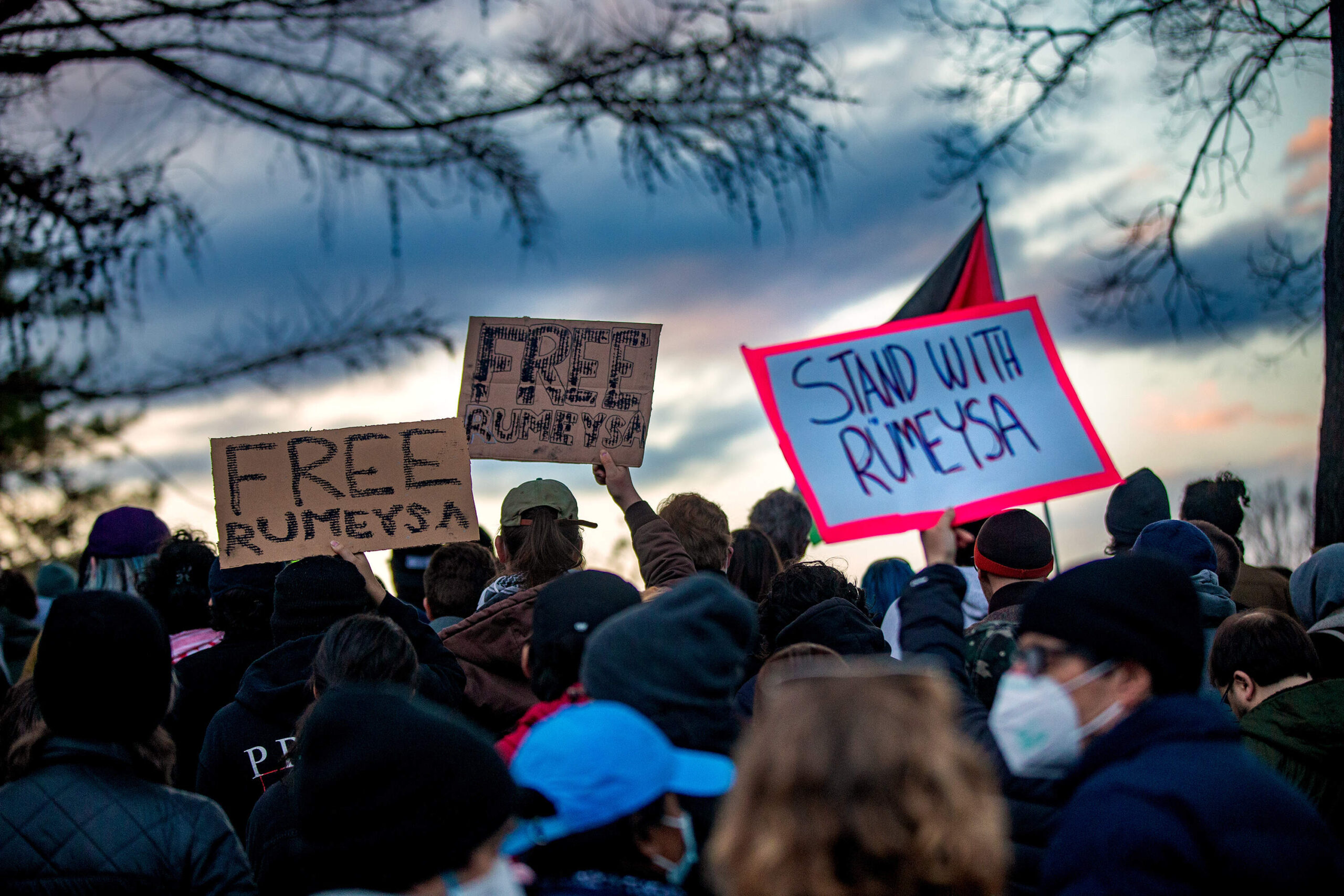By Diane Wong
June 5, 2025
The end of April marked the first 100 days into Trump’s second presidency, a whirlwind start to the many changes he promised on the campaign trail: a crackdown on immigration, a massive overhaul of the federal government, the elimination of DEI programs, a series of global tariffs, among others. Since taking office, Trump has signed 143 executive orders, surpassing Roosevelt’s record of 99 in 100 days. These executive orders include directives to revoke birthright citizenship, freeze foreign aid, ban transgender troops from military service, some of which are temporarily blocked by courts.
While these changes have broadly affected our lives one way or another, young adults have faced a particular set of challenges under the current administration. In recent weeks, Trump has escalated his campaign to end “wokeness” and diversity efforts on college campuses, including the freezing of federal funding for universities like Columbia, where student protests over the genocide in Gaza made headlines last year. To restore federal funding, Columbia has yielded to a series of demands issued by the Trump administration which include banning masks on campus, empowering security officers to remove and arrest individuals on campus, and reassigning control of the Middle East, South Asian, and African studies department and the Center for Palestinian Studies.
These directives counter the beliefs of most young adults, given that 77% of Black, 82% of AAPI, 70% of Latinx, and 57% of white of Gen Z respondents included in our August 2024 GenForward Survey see diversity on college campuses as somewhat or very important. In addition, the same Genforward dataset indicates that many young adults oppose the federal government regulating ideology and which topics professors are allowed to teach in classrooms. For instance, 43% of Black, 75% of AAPI, 49% of Latinx, and 64% of white Gen Z respondents oppose government regulations that limit free-speech and academic freedom on university campuses. Trump’s executive orders tying research funds to antisemitism and the withholding of federal support for universities that he views as liberal adversaries goes against these views of Gen Z young adults.
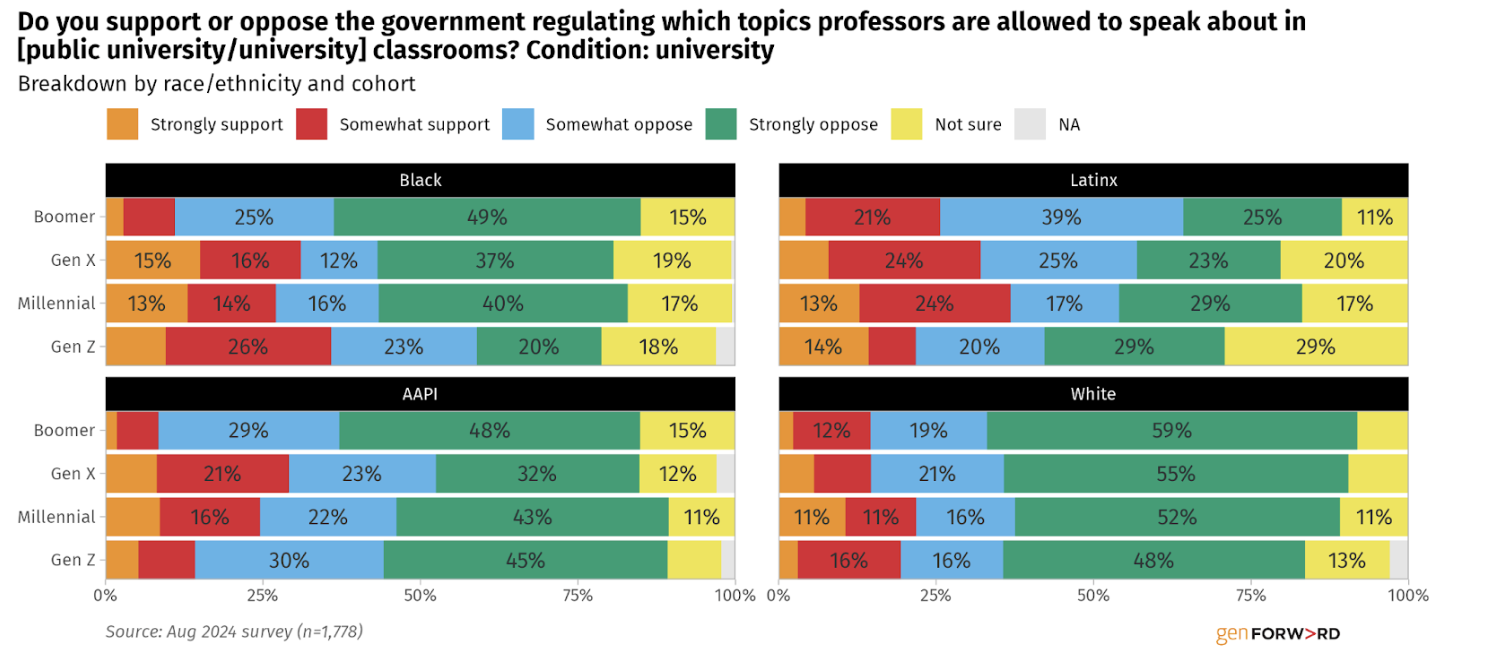
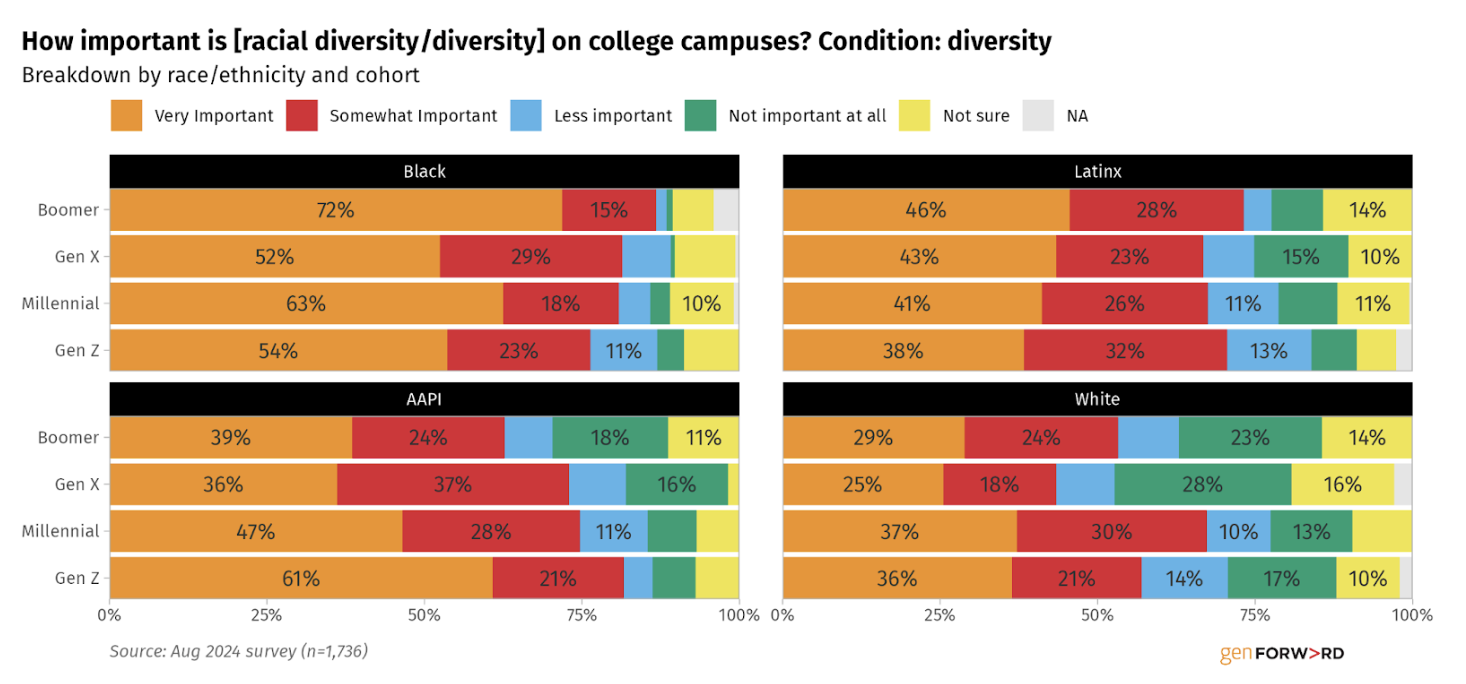
In addition to restrictions on academic freedom, many students feel that higher education has become increasingly hostile and unsafe. The Trump administration has been rounding up students and faculty members who have been vocal about Israel’s war on Gaza, including Mahmoud Khalil, a graduate student at Columbia who was arrested in university housing. The list of detained students have grown to include Rumeysa Öztürk, a Turkish student at Tufts who was taken into ICE custody in Massachusetts, Badar Khan Suri, a postdoctoral scholar at Georgetown, who was detained at his home in Washington D.C., and Moshen Mahdawi, a Columbia student who was arrested at his citizenship interview. Their collective views on Gaza are reflective of what most young adults believe, our August 2024 Genforward Survey data shows that a third of young adults disapprove of the war in Gaza and of US military aid to Israel, this includes 40% of Black, 57% of AAPI, 37% of Latinx, and 44% of white Gen Z young adults.
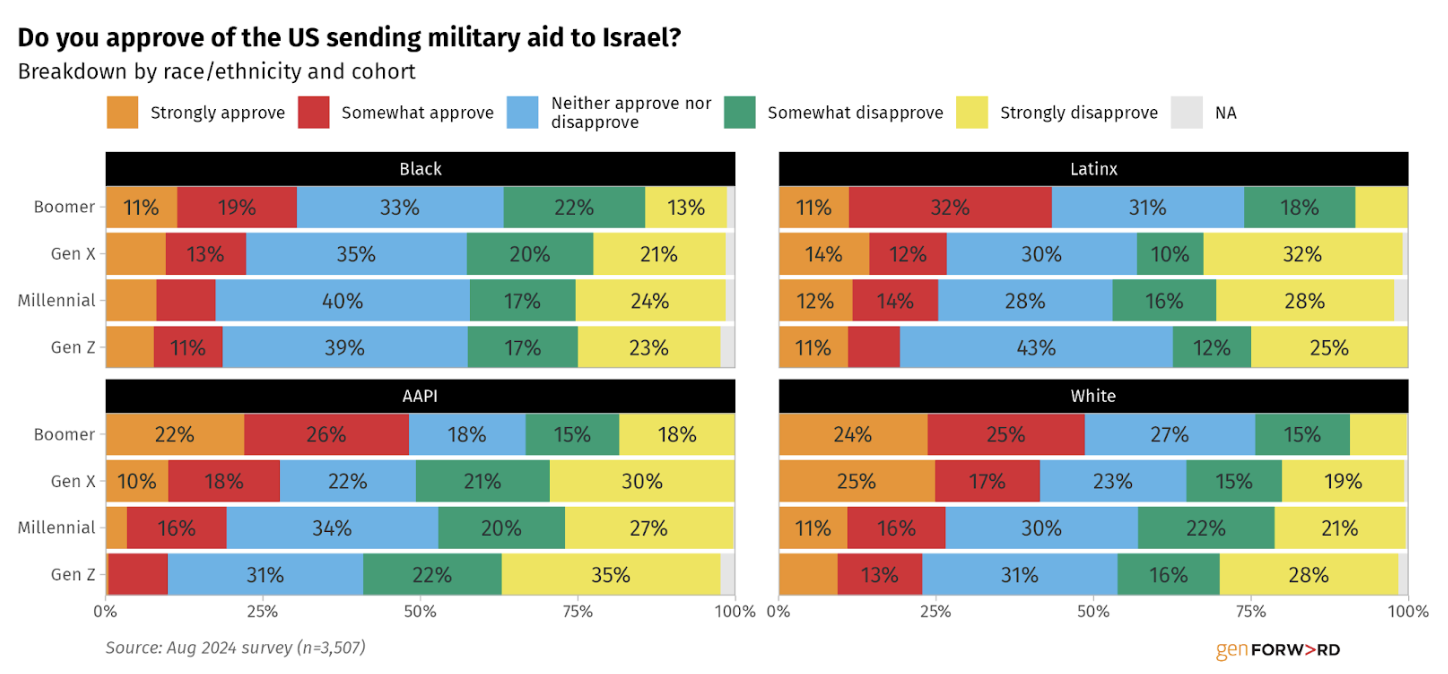
As part of his mass deportation agenda and attempt to remake higher education, Trump has revoked the visas of 4,000 international students, most of whom are from Asia and the Middle East. According to the University of California, the Trump administration had revoked visas of at least three dozen students and alumni who had participated in pro-Palestinian protests last spring. For international students, this crackdown on free speech has led to an unprecedented climate of fear and self-censorship on campus that has disrupted every aspect of academic life. These sentiments have likely gotten worse given the erosion of democracy and a growing culture of fear on campus, particularly for immigrants and international students who continue to be silenced, threatened, arrested, and banished. After freezing $100 million dollars in federal grants to Harvard, the Trump administration has attempted to revoke the university’s ability to enroll international students in its escalating battle with the university.
Despite a climate of fear and uncertainty at many colleges and universities, students, staff, and faculty are standing up for academic freedom and democracy. As of the end of April, a unified statement denouncing Trump’s overreach of executive authority has been signed by 400 university presidents, including universities and private colleges across thirty states. Faculty and university senates at Rutgers, Indiana, Minnesota, have signed resolutions to join the Big Ten Alliance, which is a joint defense pact for schools to protect one another from potential attacks from the Trump administration. In a public act of defiance, Harvard posted the letter that Education Secretary Linda McMahon sent to the college about a freeze in federal funding, using red pen to mock up randomly capitalized letters, run-on and incomplete sentences, and improper use of punctuation.
We have yet to see the impact of such opposition, but what is certain is that we are likely to see additional interventions led by students, faculty, and staff on campuses across the country as the current administration continues to crack down on dissent. As higher education becomes a battleground for free speech and democracy, Genforward Survey data offers insight into the kind of classrooms that students want to see in the future.
The GenForward Survey is associated with the University of Chicago. The August Survey responses were collected from July 22, 2024, through August 5, 2024, among a nationally representative sample of 3,576 adults 18+ in the United States. The overall margin of error is ±3.06 percentage points at the 95 percent confidence level.
Diane Wong (She/Her) is an Assistant Professor in the Department of Political Science at Rutgers University, Newark. Her research and teaching interests include American politics, race and ethnicity, critical urban studies, comparative immigration, gender and sexuality, cultural and media studies, and community rooted research. Her current book project, You Can’t Evict A Movement: Intergenerational Activism and Housing Justice in New York City, focuses on intergenerational resistance to gentrification in Manhattan’s Chinatown.
More Perspectives

